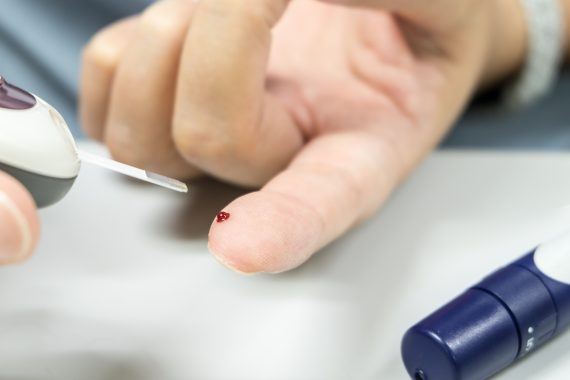Type 2 diabetes drug does not reduce risk of death, say researchers

DPP-4 inhibitor drugs do not reduce the risk of death among patients with type 2 diabetes when compared with placebo or no treatment, new research has found.
The study, published in JAMA, revealed that while SGLT-2 inhibitors and GLP-1 agonists both caused a significant reduction in mortality, the DDP-4 inhibitor class did not.
Researchers from Imperial College London studied the three classes of diabetes drugs to assess their effect on all-cause mortality, as well as cardiovascular outcomes.
The team conducted a network meta-analysis of over 200 trials with more than 170,000 patients, and compared the drugs against each other, a placebo, and no treatment at all.
They found that while all three drugs lowered blood sugar levels, only two reduced the risk of death when compared with a placebo.
SGLT-2 inhibitor drugs were associated with a 0.80 hazard risk, showing a 20% reduction in risk of death, compared with patients taking an inactive placebo pill, or people taking no medication at all.
GLP-1 agonist drugs had a hazard risk of 0.88, equalling an 18% reduction in the risk of death.
However the DPP-4 inhibitor drugs were not associated with a reduced risk of mortality.
SGLT-2 inhibitors, GLP-1 agonists, and DPP-4 inhibitors are currently prescribed to at least one in three people with type 2 diabetes.
Lead author Dr Sean Zheng, a researcher at the National Heart and Lung Institute at Imperial College London, said the study aimed to ‘investigate which of these three treatments are most efficient at preventing death and cardiovascular diseases’ because of the heightened risk of death from heart attacks or strokes among patients with type 2 diabetes.
He said: ‘The three drug classes assessed here are being increasingly prescribed, yet until now there have been no clinical trials studying how these drugs compare to each other, and which type of drug could be the best option for patients…
‘Our hope is that in the crowded market that is diabetes medications, patients and their doctors have the necessary information to allow them to make informed decisions about long-term treatment strategies.’
When analysing safety, the team found that all three classes resulted in significantly more hypoglycemic events compared with the control groups, despite SGLT-2 inhibitors and GLP-1 agonist using glucose-dependent mechanisms with low theoretical risks of hypoglycaemia.
They also saw that SGLT-2 inhibitors were associated with an increased risk of genital infections but not urinary tract infections, while DPP-4 inhibitors were linked with an increased risk of acute pancreatitis. The study suggested that this could be minimised with ‘careful treatment selection’.
The paper concluded that for all-cause and cardiovascular mortality ‘SGLT-2 inhibitors were most likely to rank best, GLP-1 agonists second best, and DPP-4 inhibitors worst’.
It added that while SGLT-2 inhibitors were ‘most likely to rank best for heart failure and myocardial infarction outcomes’, GLP-1 agonists were ‘most likely to rank best for stroke outcomes’.
Earlier this year a study identified five distinct types of diabetes, with three severe and two mild forms of the disease.
The researchers said that this new classification system could allow for more accurate diagnoses and improved guidance on treatment choices.
Pulse July survey
Take our July 2025 survey to potentially win £1.000 worth of tokens

Visit Pulse Reference for details on 140 symptoms, including easily searchable symptoms and categories, offering you a free platform to check symptoms and receive potential diagnoses during consultations.










